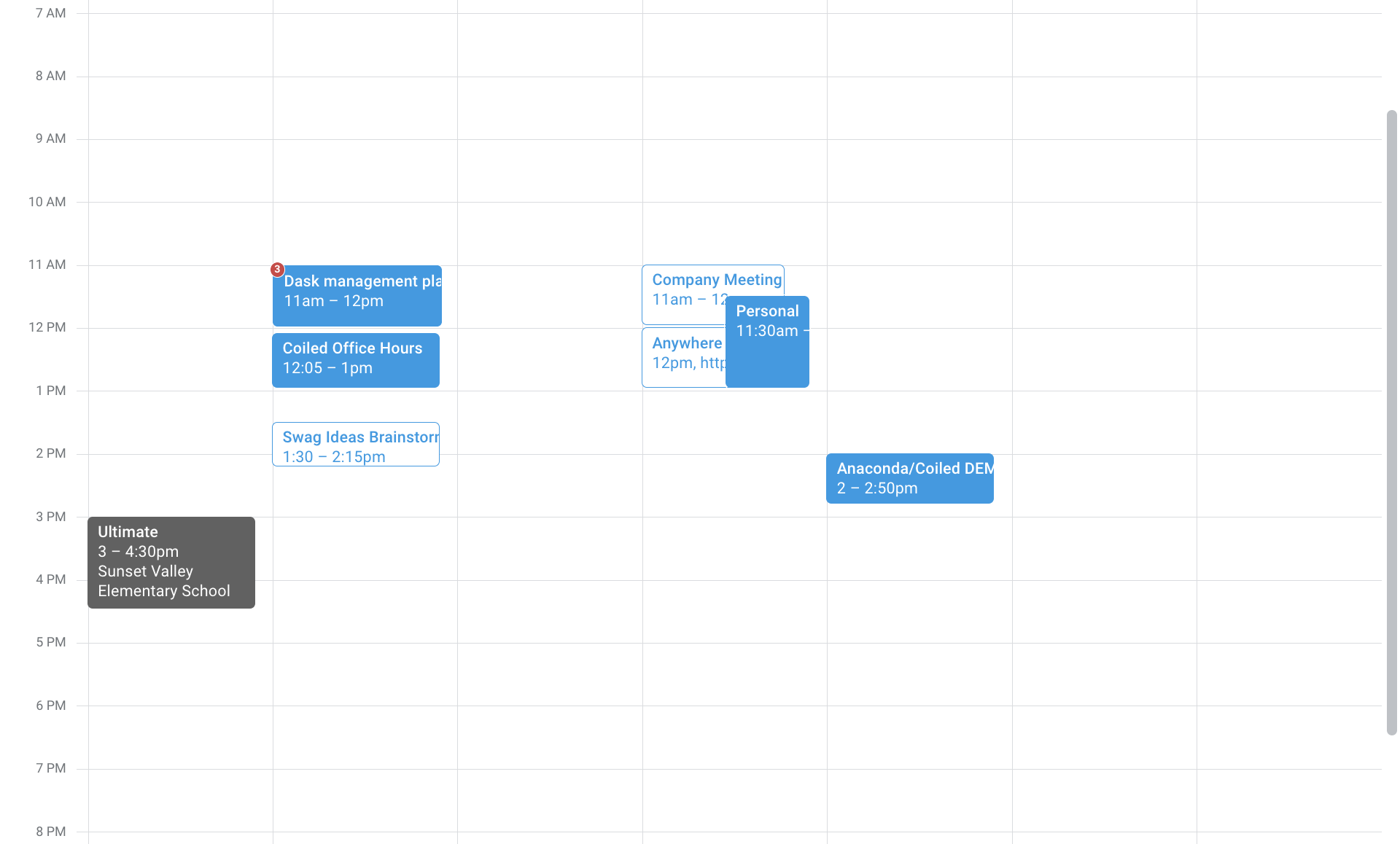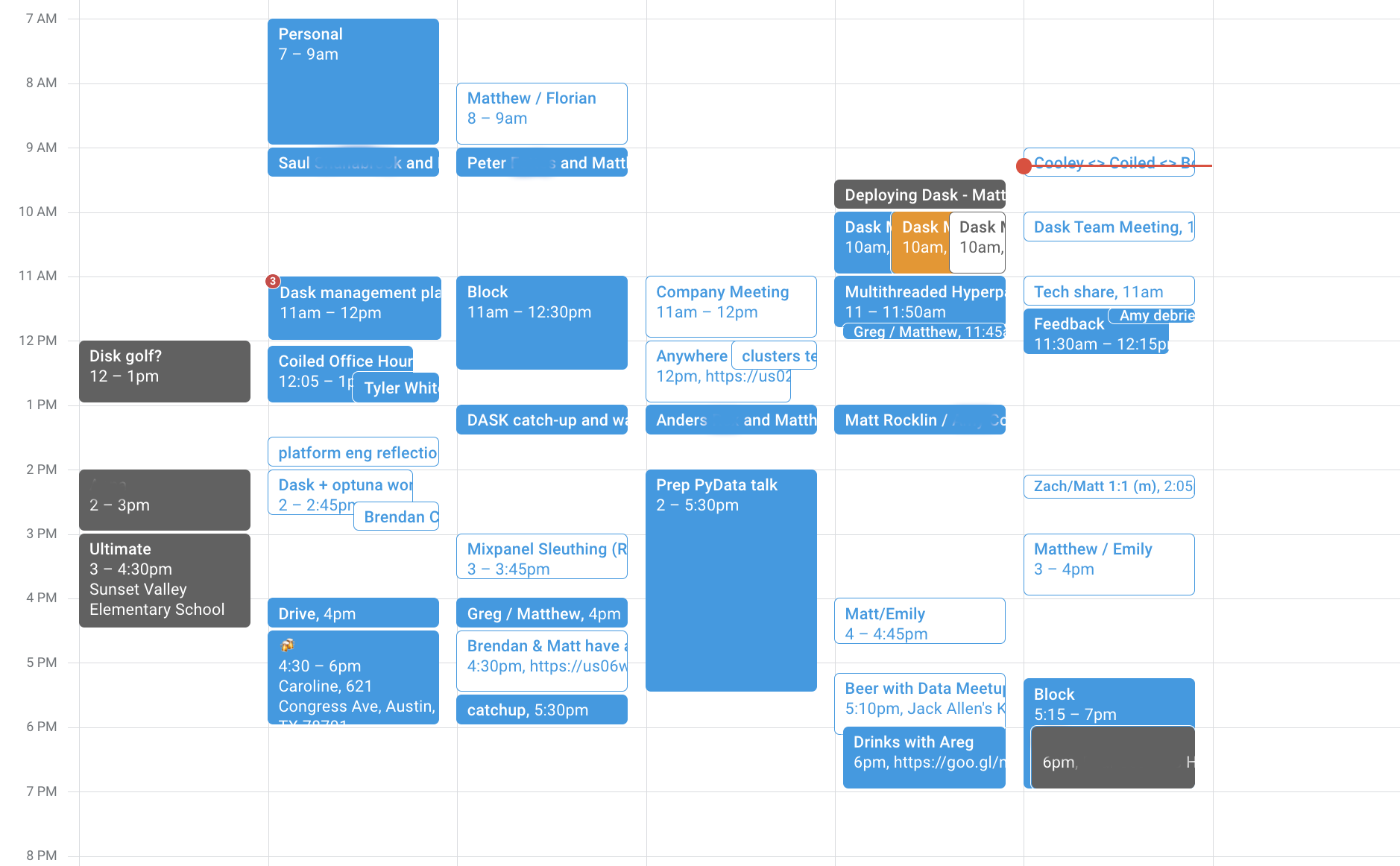Meetings#
I cancelled all my regular meetings and logged off of Slack. It has made a huge difference.
This article goes into why and how I made this change as well as the results on my mental health and performance at the company.
Before State#
Before this change I had accrued lots of regular meetings (1-1, team standups, all-hands, board meetings, customer check-ins). These filled about half of my calendar before anything new was scheduled in a week. I don’t get energy from routine inter-personal interactions, and so this load was enough to exhaust me. This caused two problems:
I didn’t have any energy for additional thinking / work
I thought that I was doing my job
I learned that it’s easy to spend energy on a normal activity, think “I’m doing my job”, and be completely wrong.
What Happened#
So I cancelled everything on my calendar (1-1s, standups, all-hands, board meetings) but still encouraged others to meet if they found it valuable.
At first I was able to relax and recover a bit. As I recovered I developed more curiosity about the company and engaged much more deeply.
I used our product more
I spoke with customers more
I spoke with people doing interesting work in the company and found out what they needed
I engaged in more design work
I travelled more and connected directly with people
I wrote more, did more experiments, and published them
My calendar is now full of meetings again. But these meetings are meetings that I choose week-by-week to push forward what I’m working on.
Here is my calendar for next week. It’s a blank slate:

And my calendar for this last week (I write this on Friday). It’s full:

I still meet with people but now these meetings are important. By Friday next week I expect my calendar for next week (first image) to be just as full as my calendar for this week (second image).
These meetings are exciting rather than draining because they’re all important for endeavors that I’m pushing forward right now. At the end of every week I look back and think “Wow, I’ve made a real impact and pointed things more in the right direction”. I’m energized by impact, and feel much better about my work.
I learned that I love working together with people. I hate meeting with them just to meet. I’m driven by purpose rather than routine. I suspect that many of us are.
In-Person Meetings#
I also prioritize spending time with people in person more. This includes offsites, conferences, and generally making time when we’re in the same area.
In particular …
We’ve been doing way more team offsites in the company.
While I’ve cancelled regular board meetings I’ve spent much more time in person with investors and we all feel way more aligned (they’re on board with this approach)
Leadership meets pretty frequently at conferences and offsites
Zooming Out#
This experience taught me to question how I work.
Before, I spent my day in regular meetings because that’s how people say you should run a business. After I changed successfully I learned to trust common practice less, and trust my own judgment more. Maybe this was the way most people work, maybe it was even an effective way for most people, but it certainly wasn’t an effective way for me to work.
After realizing the potential for improvement over common practice, I felt free to reinvent how I work in a way that is best for me. I encourage others to brutally assess how they work today, realize how much control they have, and begin experimenting heavily.